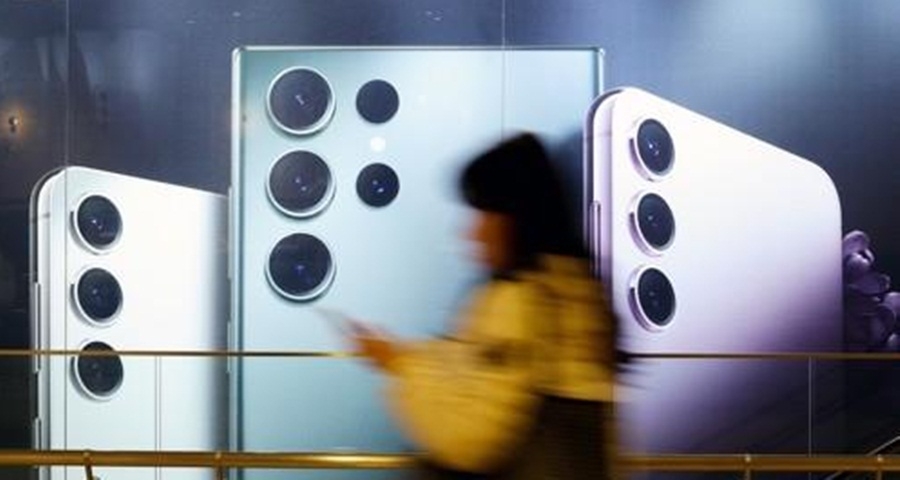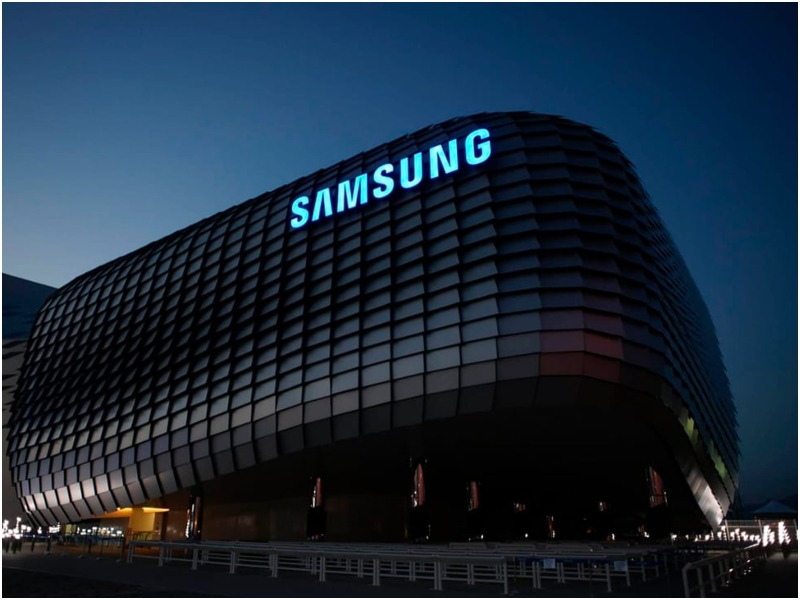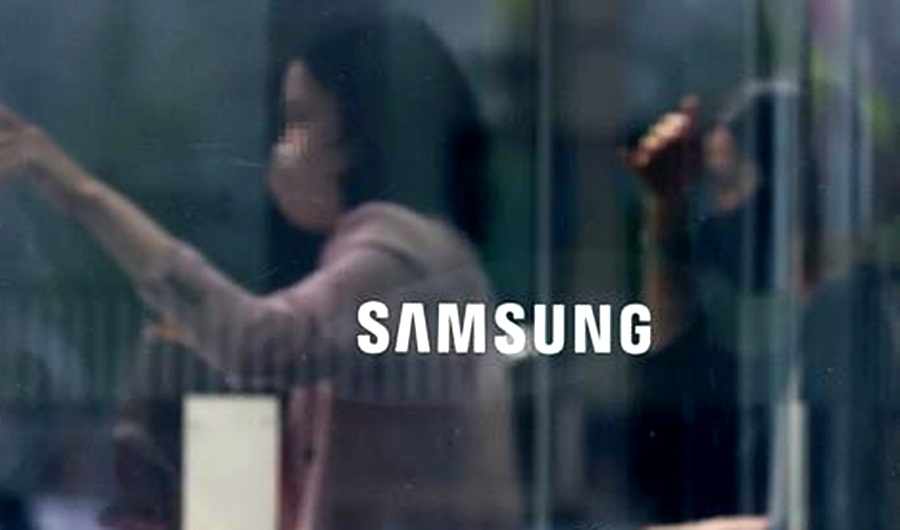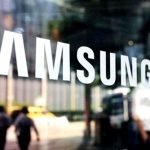The last time Samsung saw its core unit making losses was the first quarter of 2009, when the world was emerging from the 2008 financial crisis…reports Asian Lite News
Samsung Electronics on Thursday reported its worst quarterly profit in 14 years, as global economic woes dented demand for consumer electronics and a chip glut battered its core business.
The world’s largest memory chip and smartphone maker reported operating profit of 640.2 billion won ($478 million) during the January-March period, falling 95 percent from the 14.12 trillion won it posted a year ago.
Its first-quarter net income came to 1.57 trillion won, down 86.1 percent from a year earlier. Sales fell 18 per cent to 63.74 trillion won, reports Yonhap news agency.
Samsung’s Device Solution (DS) division, which oversees its chip business, posted a deficit of 4.58 trillion won, in its first financial loss in 14 years, with chip inventories growing significantly amid tapering global demand.
The last time Samsung saw its core unit making losses was the first quarter of 2009, when the world was emerging from the 2008 financial crisis.
Samsung blamed the poor results on “weak demand,” “a decline in utilisation rates in the foundry business” and “inventory adjustments from customers.”
Also the inventory valuation loss, which started to kick in from its NAND flash products in the previous quarter, started to impact DRAM this year, the company said.
“With the additional price decline recently in DRAM, there was a larger inventory valuation loss recognised this quarter and that had an additional impact on our performance,” it said during an earnings call.
Earlier this month, Samsung said it was cutting memory production “to a meaningful level,” in a sharp departure from its previous position that it would not artificially reduce output as part of efforts to gain a bigger market share.
Its smaller rivals like SK hynix and Micron had moved several months earlier than Samsung did and pulled back on production in order to ease a severe supply glut that drove down prices.
During the earnings call, Samsung said it started cutting production of the legacy products that it had already secured sufficient volume of to meet mid-to-long term demand. The production cut came on top of the factory line optimisation that already began early this year, it said.
“We expect the size of the reduction to be far more meaningful,” the chipmaker said, adding that it expected the inventory levels to start to decrease from the second quarter.
“Going forward, we will continue to monitor the market demand and operate our production flexibly. So we expect our inventory normalisation speed to accelerate in the second half,” Samsung said.
Market tracker TrendForce said early this year it would take “several quarters of inventory adjustments” and “larger production cuts” by major chipmakers to digest the excessive supply that plagued the industry, and to leave behind the downturn phase.
Samsung forecast the global chip market will shrink 6 per cent on-year to $563 billion this year and warned of difficult conditions continuing throughout the year.
Regarding the US Chips Act, Samsung said it plans to actively engage in the U.S.-led procedures to iron out the details of the obligation clauses of the act and to share with Washington its opinions and feedback.
“The company is currently studying various possibilities and scenarios, and will continue to work on minimising any geopolitical risks to our business,” it said.
Samsung Electronics on Thursday reported its worst quarterly profit in 14 years, as global economic woes dented demand for consumer electronics and a chip glut battered its core business.
The world’s largest memory chip and smartphone maker reported operating profit of 640.2 billion won ($478 million) during the January-March period, falling 95 percent from the 14.12 trillion won it posted a year ago.
Its first-quarter net income came to 1.57 trillion won, down 86.1 percent from a year earlier. Sales fell 18 per cent to 63.74 trillion won, reports Yonhap news agency.
Samsung’s Device Solution (DS) division, which oversees its chip business, posted a deficit of 4.58 trillion won, in its first financial loss in 14 years, with chip inventories growing significantly amid tapering global demand.
The last time Samsung saw its core unit making losses was the first quarter of 2009, when the world was emerging from the 2008 financial crisis.
Samsung blamed the poor results on “weak demand,” “a decline in utilisation rates in the foundry business” and “inventory adjustments from customers.”
Also the inventory valuation loss, which started to kick in from its NAND flash products in the previous quarter, started to impact DRAM this year, the company said.
“With the additional price decline recently in DRAM, there was a larger inventory valuation loss recognised this quarter and that had an additional impact on our performance,” it said during an earnings call.
Earlier this month, Samsung said it was cutting memory production “to a meaningful level,” in a sharp departure from its previous position that it would not artificially reduce output as part of efforts to gain a bigger market share.
Its smaller rivals like SK hynix and Micron had moved several months earlier than Samsung did and pulled back on production in order to ease a severe supply glut that drove down prices.
During the earnings call, Samsung said it started cutting production of the legacy products that it had already secured sufficient volume of to meet mid-to-long term demand. The production cut came on top of the factory line optimisation that already began early this year, it said.
“We expect the size of the reduction to be far more meaningful,” the chipmaker said, adding that it expected the inventory levels to start to decrease from the second quarter.
“Going forward, we will continue to monitor the market demand and operate our production flexibly. So we expect our inventory normalisation speed to accelerate in the second half,” Samsung said.
Market tracker TrendForce said early this year it would take “several quarters of inventory adjustments” and “larger production cuts” by major chipmakers to digest the excessive supply that plagued the industry, and to leave behind the downturn phase.
Samsung forecast the global chip market will shrink 6 per cent on-year to $563 billion this year and warned of difficult conditions continuing throughout the year.
Regarding the US Chips Act, Samsung said it plans to actively engage in the U.S.-led procedures to iron out the details of the obligation clauses of the act and to share with Washington its opinions and feedback.
“The company is currently studying various possibilities and scenarios, and will continue to work on minimising any geopolitical risks to our business,” it said.
ALSO READ-Samsung cuts pay hike














